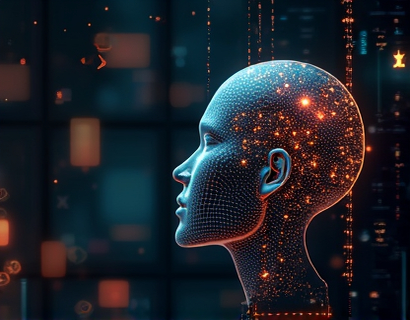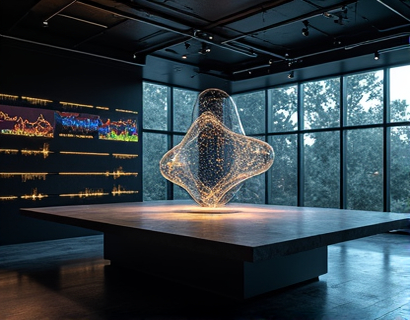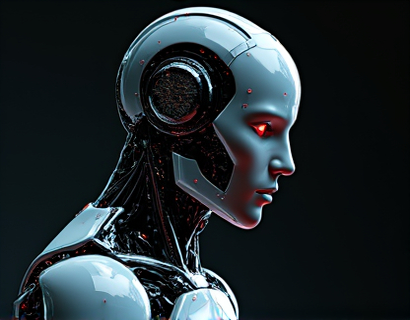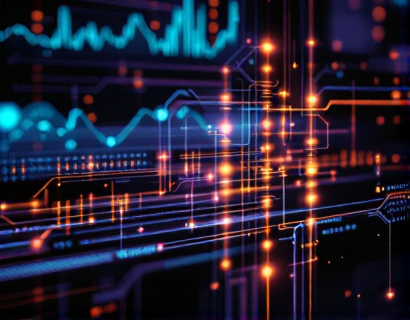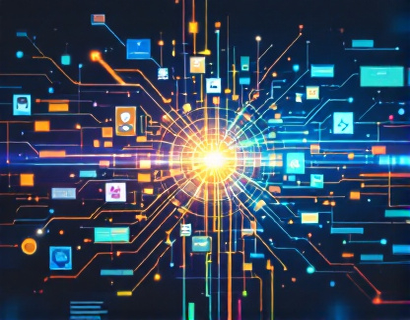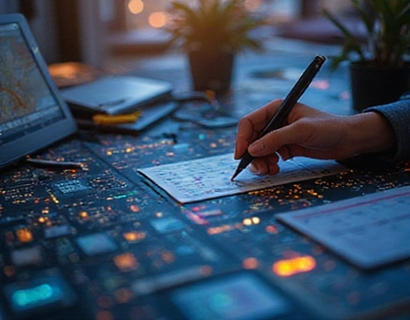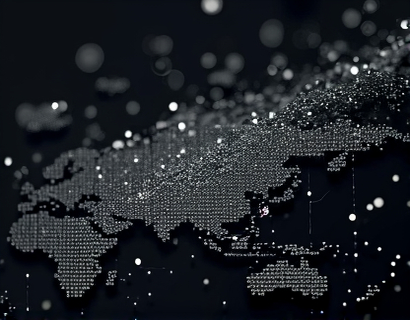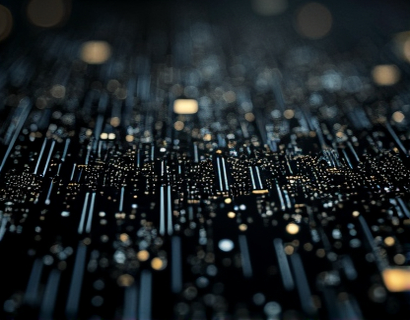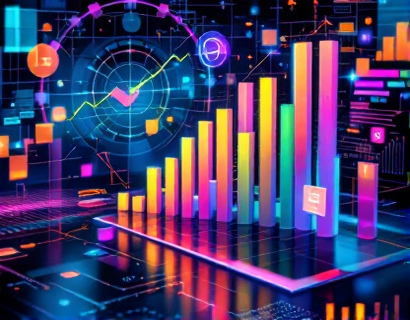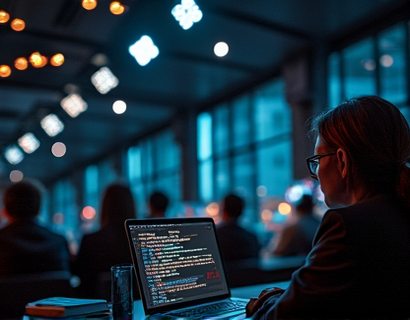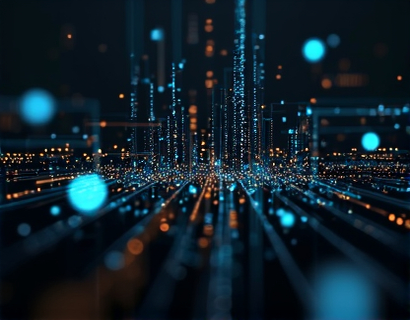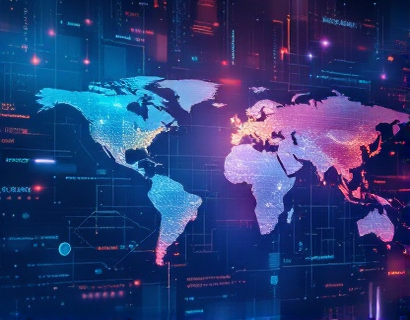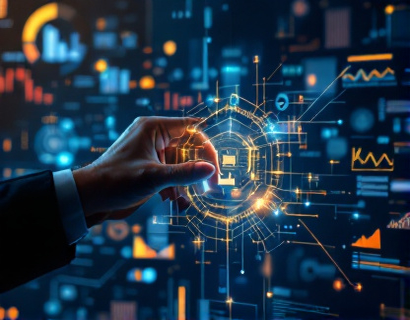Revolutionizing Productivity in the Digital Age: The Synergy of Crypto and AI
The intersection of cryptocurrency and artificial intelligence (AI) is giving rise to a new era of digital solutions that are transforming the way tech innovators and digital visionaries approach productivity. This synergy is not just about combining two cutting-edge technologies; it's about creating a powerful ecosystem that streamlines tasks, enhances efficiency, and opens up new possibilities for tech leaders and early adopters. In this article, we will delve into the innovative applications of crypto and AI, exploring how these technologies are redefining productivity in the digital age.
The foundation of this revolution lies in the unique properties of blockchain technology, which underpins cryptocurrency. Blockchain's decentralized, transparent, and secure nature makes it an ideal platform for building trust and ensuring integrity in digital transactions. When combined with AI, which excels in processing vast amounts of data and learning from patterns to make intelligent decisions, the potential for innovation becomes immense. Together, these technologies can create smart, autonomous systems that optimize workflows and drive productivity to new heights.
Enhancing Task Automation with Smart Contracts
One of the most immediate applications of blockchain in productivity is through smart contracts. Smart contracts are self-executing contracts with the terms of the agreement directly written into code. They automatically trigger actions when predefined conditions are met, eliminating the need for intermediaries and reducing the risk of human error. For tech innovators, this means that repetitive and time-consuming tasks can be automated, freeing up valuable time and resources.
For instance, in project management, smart contracts can automate payment processes based on milestone completion. When a developer completes a specific task, the smart contract can automatically release payment to the developer, ensuring timely and accurate compensation. This not only speeds up the process but also builds trust and accountability among team members. The transparency of blockchain ensures that all transactions are recorded and verifiable, reducing disputes and increasing efficiency.
AI-Driven Insights for Data Analysis
AI's strength in data analysis can significantly enhance decision-making processes in various industries. By leveraging machine learning algorithms, AI can process and analyze large datasets to uncover insights that would be impossible for humans to detect manually. For tech innovators, this means gaining a competitive edge by making data-driven decisions quickly and accurately.
Consider a scenario where a tech company is developing a new product. Traditional methods of market research involve collecting data, analyzing it manually, and making decisions based on the findings. With AI, the same data can be processed in real-time, providing instant insights into market trends, customer preferences, and potential risks. This rapid analysis allows for agile adjustments to the product development process, ensuring that the final product meets market demands more effectively.
Decentralized Collaboration Platforms
The concept of decentralized collaboration platforms is another exciting area where crypto and AI converge to enhance productivity. These platforms use blockchain to create a trustless environment where users can collaborate without the need for central authorities. AI can further enhance these platforms by providing intelligent tools for communication, project management, and task allocation.
Imagine a decentralized workspace where team members from different parts of the world can collaborate seamlessly. AI-powered chatbots can facilitate communication, translating languages in real-time and summarizing key points from discussions. Blockchain ensures that all contributions are recorded and rewarded fairly, incentivizing participation and innovation. This combination of decentralization and AI-driven tools creates a more inclusive and efficient collaborative environment.
Tokenized Incentives and Gamification
Tokenized incentives and gamification are innovative approaches that leverage cryptocurrency to motivate and engage users. By issuing tokens that represent value or rewards, organizations can create a system where users are incentivized to complete tasks, contribute ideas, or participate in community activities. AI can optimize these systems by analyzing user behavior and adjusting token distributions to maximize engagement and productivity.
For example, a tech community platform can use AI to identify active contributors and reward them with tokens that can be used to access premium content, participate in exclusive events, or even vote on future project directions. This not only encourages active participation but also aligns the interests of the community with the goals of the platform. The transparency of blockchain ensures that all transactions are visible, fostering trust and fairness within the community.
Predictive Maintenance and IoT Integration
In the realm of Internet of Things (IoT), the combination of AI and blockchain can revolutionize predictive maintenance. IoT devices generate vast amounts of data that, when analyzed by AI, can predict equipment failures before they occur. This predictive maintenance not only reduces downtime but also optimizes maintenance schedules, saving costs and resources.
Blockchain can play a crucial role in this ecosystem by providing a secure and transparent way to manage and verify data from IoT devices. Each data point can be recorded on the blockchain, ensuring its integrity and traceability. This is particularly important in industries where reliability and safety are paramount, such as manufacturing and healthcare. AI can process this data in real-time, triggering maintenance alerts and automating the ordering of replacement parts, all while maintaining a tamper-proof record of all transactions.
Supply Chain Transparency and Efficiency
The supply chain industry stands to benefit greatly from the integration of AI and blockchain. AI can optimize supply chain operations by analyzing data from various sources, predicting demand, and automating logistics. Blockchain ensures that all transactions and movements of goods are recorded transparently and securely, reducing fraud and increasing trust among stakeholders.
For instance, in a global supply chain, AI can monitor inventory levels, forecast demand, and optimize routing for delivery vehicles. Blockchain can track the origin and journey of each product, ensuring authenticity and compliance with regulations. Smart contracts can automate payments and customs processes, streamlining the entire supply chain. This level of transparency and efficiency not only reduces costs but also enhances customer satisfaction by ensuring timely and reliable delivery.
Security and Privacy in Digital Transactions
Security and privacy are critical concerns in the digital age, and the combination of AI and blockchain offers robust solutions. AI can detect and mitigate security threats in real-time, identifying anomalies and potential vulnerabilities in the system. Blockchain's inherent security features, such as cryptographic hashing and decentralized consensus, provide an additional layer of protection against cyber attacks.
For tech innovators, this means that sensitive data and transactions can be secured with unprecedented levels of safety. AI-driven security systems can adapt to new threats continuously, ensuring that the system remains resilient. Blockchain's immutable ledger ensures that once data is recorded, it cannot be altered, providing a tamper-proof record of all transactions. This combination is particularly valuable in industries handling sensitive information, such as finance, healthcare, and government.
Conclusion
The synergy of cryptocurrency and AI is paving the way for a new era of productivity and innovation. By leveraging the strengths of both technologies, tech innovators can create smart, efficient, and secure systems that streamline tasks and enhance efficiency. From automating processes with smart contracts to gaining insights through AI-driven data analysis, the potential applications are vast and transformative. As this field continues to evolve, those who embrace these technologies will be well-positioned to lead the digital revolution and shape the future of work.





